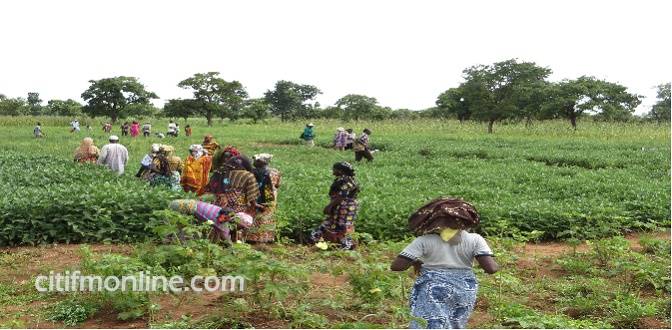The Bill and Melinda Foundation has released US $20 million for the implementation of a five-year project meant to boost soybeans, cowpea and groundnuts cultivation in the three regions of the north.
The project dubbed, “Putting Nitrogen Fixation to Work for Smallholder Farmers in Africa (N2Africa), forms part of the Foundation’s commitment to reduce poverty and malnutrition in some selected African countries including Ghana.
The Ghana component is spread across the three regions of the north where rural agriculture is the economic mainstay of the majority.
In the Northern Region, a Non Governmental Organization called the Urban Agriculture Network (URBANET) is spearheading the project under the auspices of the International Institute for Tropical Agriculture (IITA).
URBANET has already set up 20 soybeans, 15 cowpeas and 15 groundnuts demonstration fields in the Savelugu/Nantong district.
The organization has so far extended modern technology to 600 soybean, 450 cowpea and 450 groundnut farmers in the district during field visits.
URBANET by extension is disseminating information to the beneficiaries through radio discussions.
At a day’s event on the Savelugu Nmali-Tahama farmers group field, the N2Africa Project Coordinator, Professor Samuel Adjei-Nsiah, told Citi News the project seeks to boost the beneficiary households’ nutrition and income levels.
He revealed that about 85,000 smallholder farmers are expected to the benefit from the project being implemented in Ghana, Nigeria, Ethiopia, Uganda and Tanzania.
According to Professor Adjei-Nsiah, the beneficiaries are introduced to high quality rhizoidal inoculants technologies and improved varieties of legumes.
He explained that bush burning coupled with poor land preparation have accounted for poor soil fertility in the three regions of the north, hence the need for legume small holder farmers to adopt the project to maximize their yields.
He encouraged small holder farmers to take advantage of the project and shift into legumes cultivation because they are the fastest growing cash crops in the three regions of the north.
Professor Adjei-Nsiah also disclosed IITA’s partnership with the Savannah Agriculture Research Institute (SARI) to produce local inoculants for the farmers.
Chairman of the Savelugu Nmali-Tahama Farmers group, Zakaria Mahama, acknowledged the significance of the N2Africa project to their livelihood.
He said the adaptation of the rhizoidal inoculants technologies and improved varieties of legumes at relatively cheaper cost always promote high yields.
Zakaria Mahama appealed to URBANET to liaise with local fertilizer suppliers to import enough inoculants to meet their demand.
URBANET is a Tamale based local Non Governmental Organization working with small holder farmers especially women to build their capacities in securing food and nutrition in an environmentally sustainable manner.
–
By: Abdul Karim Naatogmah/Citifmonline.com/Ghana




